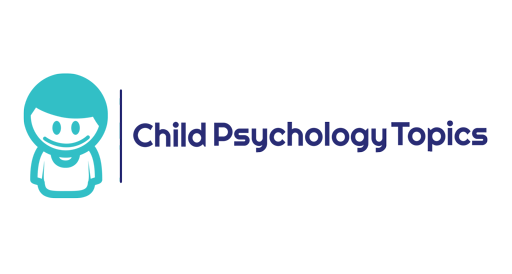Every child is unique and may face different challenges in their academic journey. For children with executive functioning difficulties, the traditional school environment can be particularly challenging.
Executive functioning skills encompass a range of cognitive processes crucial for academic success, including organization, time management, and impulse control.
As educators and caregivers, it’s essential to understand how to support these children effectively. This article will delve into practical strategies to help children with executive functioning difficulties thrive in the school setting.

Understanding Executive Functioning Difficulties
Executive functioning difficulties encompass a spectrum of challenges that can significantly impact a child’s academic performance and social interactions. These difficulties often manifest as an inability to plan and organize tasks, manage time effectively, or control impulses and emotions.
For some children, these challenges may result in difficulty initiating tasks, maintaining focus, or adapting to changes in routines. Understanding the specific manifestations of these difficulties is essential for tailoring appropriate interventions and support.
One common manifestation is organizational challenges, where children may struggle to keep track of their belongings, manage their materials, and follow through on tasks. These difficulties can lead to a sense of disorganization and frustration, affecting the child’s overall confidence and self-esteem.
Additionally, children with executive functioning difficulties may find it challenging to prioritize tasks, often leading to procrastination or difficulty completing assignments within set deadlines.
Moreover, difficulties in time management can be particularly prevalent, with children struggling to estimate the time needed for specific tasks and allocate time efficiently.
This can result in rushed work, incomplete assignments, or a feeling of being overwhelmed by the demands of school and extracurricular activities.
Furthermore, challenges with emotional regulation and impulse control can affect a child’s social interactions and behavior in the classroom.
Difficulties in managing emotions may lead to outbursts, conflicts with peers, or difficulty adapting to changes in routine, thus impacting their overall learning experience and social integration.
By recognizing and understanding these specific challenges, educators and caregivers can employ targeted strategies to help children with executive functioning difficulties thrive in the academic environment.
Creating a supportive and empathetic atmosphere that addresses their unique needs is crucial in fostering their overall development and success.

Creating a Structured Environment
Establishing a structured environment is vital for children with executive functioning difficulties as it provides a sense of predictability and stability, which can significantly reduce anxiety and confusion. Here are some key aspects to consider when creating such an environment:
- Consistent Routines: Implementing consistent daily routines and schedules can help children anticipate what comes next, reducing the stress associated with unpredictability. Having a regular timetable for activities such as classwork, breaks, and recreational time can provide a clear framework for the child to follow.
- Clear Expectations and Rules: Clearly defining expectations and rules within the classroom or home environment can help children understand what is expected of them and what behaviors are acceptable. Using visual aids, such as charts or posters outlining rules and expectations, can provide a helpful reference point for the child to refer to when needed.
- Designated Spaces: Creating specific, organized spaces for various activities, such as study areas, play areas, and relaxation zones, can help children associate different spaces with different activities. This can aid in promoting a focused mindset during learning tasks and a relaxed mindset during recreational periods.
- Visual Aids and Supports: Using visual aids, such as color-coded schedules, visual timetables, and labeled storage spaces, can enhance the child’s understanding of the daily structure and facilitate independent navigation within the environment. Visual supports serve as valuable reminders and prompts, promoting a sense of autonomy and empowerment.
- Flexibility within Structure: While maintaining a structured environment is crucial, it is essential to allow some flexibility to accommodate unexpected changes or individual needs. Teaching children how to adapt to minor changes and providing them with the tools to handle unexpected situations can foster resilience and promote adaptive behaviors.
By implementing these strategies, educators and caregivers can create an environment that not only supports the specific needs of children with executive functioning difficulties but also fosters a sense of security and confidence, enabling them to navigate their learning environment with greater ease and success.

Implementing Effective Organizational Techniques
Implementing effective organizational techniques is essential for children with executive functioning difficulties as it empowers them to manage tasks and responsibilities more efficiently. Here are some practical strategies to help foster organizational skills in these children:
- Introduce Checklists and Planners: Encourage the use of checklists and planners to help children break down complex tasks into manageable steps. Teach them how to create to-do lists for daily or weekly tasks, including homework assignments, chores, and extracurricular activities. By checking off completed tasks, children can experience a sense of accomplishment and progress, reinforcing positive organizational habits.
- Utilize Color-Coding and Labeling: Incorporate color-coded folders, binders, or labels for different subjects or types of tasks. This visual organization can help children quickly identify and retrieve materials, reducing the time and stress associated with searching for specific items. Additionally, color-coded calendars and schedules can aid in tracking important dates and deadlines, promoting effective time management.
- Break Tasks into Smaller Steps: Teach children how to break down larger assignments or projects into smaller, more manageable steps. By focusing on one step at a time, children can avoid feeling overwhelmed and develop a systematic approach to task completion. Guiding prioritizing tasks and setting realistic goals can further enhance their organizational skills and overall productivity.
- Encourage Regular Decluttering: Foster a habit of regular decluttering and organization by teaching children to tidy their workspaces and living areas. By emphasizing the importance of maintaining an organized environment, children can cultivate a sense of responsibility and ownership over their physical space. Implementing regular clean-up routines can also prevent the accumulation of unnecessary clutter, fostering a conducive environment for focused learning.
- Teach Time-Management Strategies: Introduce effective time-management strategies, such as setting specific time limits for tasks, using timers to monitor work periods, and scheduling regular breaks to maintain focus and prevent burnout. Encourage children to estimate the time needed for each task and allocate time accordingly, promoting a realistic and balanced approach to managing their workload.
By incorporating these organizational techniques into the daily routines of children with executive functioning difficulties, educators and caregivers can facilitate the development of essential skills that are crucial for academic success and overall well-being.
Providing consistent guidance and reinforcement will enable children to cultivate effective organizational habits that can significantly benefit their educational journey and future endeavors.

Promoting Self-Regulation and Emotional Management
Promoting self-regulation and emotional management skills is critical for children with executive functioning difficulties as it enables them to navigate challenging situations more effectively and maintain a positive emotional balance. Here are some effective strategies to support the development of self-regulation and emotional management skills:
- Mindfulness Practices: Introduce mindfulness practices, such as deep breathing exercises, guided meditation, or yoga, to help children develop a greater awareness of their thoughts and emotions. These practices can promote relaxation, reduce stress, and enhance emotional resilience, enabling children to approach tasks and challenges with a calmer and more focused mindset.
- Emotion Identification and Expression: Encourage open communication and provide a safe space for children to identify and express their emotions. Teach them to recognize and label their feelings, fostering emotional literacy and a better understanding of their internal experiences. Validating their emotions and teaching them healthy ways to express and manage these feelings can promote a sense of emotional well-being and self-acceptance.
- Problem-Solving Strategies: Teach children effective problem-solving strategies, such as identifying the issue, brainstorming possible solutions, evaluating the pros and cons of each option, and selecting the most appropriate course of action. Encourage them to apply these strategies to various situations, both academically and socially, empowering them to approach challenges with a proactive and solution-oriented mindset.
- Provide Sensory Support: Recognize the sensory needs of children with executive functioning difficulties and provide sensory support to help them regulate their emotions. Create sensory-friendly environments by incorporating sensory tools like stress balls, fidget toys, or sensory bins, which can help alleviate anxiety and promote a sense of calm. Offering sensory breaks during challenging tasks can also facilitate emotional regulation and improve attention and focus.
- Model and Encourage Healthy Coping Mechanisms: Model healthy coping mechanisms and positive emotional regulation strategies within the learning environment. Encourage the use of positive self-talk, self-encouragement, and self-soothing techniques when faced with difficulties or setbacks. By demonstrating these coping strategies and fostering a supportive and empathetic atmosphere, educators and caregivers can help children develop effective emotional management skills that can positively impact their overall well-being and academic success.
By incorporating these strategies into the daily routines and learning environments of children with executive functioning difficulties, educators and caregivers can empower them to develop essential self-regulation and emotional management skills that are crucial for navigating the complexities of the academic setting and fostering positive social interactions.

Encouraging Collaboration and Support
Encouraging collaboration and support among teachers, parents, and mental health professionals is crucial in creating a holistic and inclusive support system for children with executive functioning difficulties. Here are some effective strategies to foster collaboration and provide comprehensive support:
- Open Communication Channels: Establish open and transparent communication channels between teachers, parents, and mental health professionals to ensure consistent updates on the child’s progress, challenges, and support needs. Regular meetings, progress reports, and shared documentation can facilitate a comprehensive understanding of the child’s development and enable all stakeholders to provide timely and tailored support.
- Individualized Education Plans (IEPs): Develop comprehensive and individualized education plans that outline specific academic goals, accommodations, and support services tailored to the child’s unique needs. Collaborate with parents, teachers, and specialists to design IEPs that address the child’s executive functioning difficulties while fostering a conducive learning environment that promotes their overall growth and success.
- Peer Support and Group Activities: Encourage peer support and collaborative group activities within the classroom to promote social interaction and foster a sense of belonging among all students. Implement cooperative learning strategies and group projects that encourage teamwork, communication, and the exchange of ideas. Providing opportunities for children to work together can enhance their social-emotional skills and create a supportive learning community that celebrates diversity and inclusivity.
- Professional Development and Training: Offer professional development and training opportunities for teachers and caregivers to enhance their understanding of executive functioning difficulties and effective intervention strategies. Workshops, seminars, and online resources can provide valuable insights and practical tools for creating inclusive learning environments that cater to the diverse needs of all students.
- Access to Mental Health Services: Ensure access to mental health professionals and resources that can provide specialized support and interventions for children with executive functioning difficulties. Collaborate with school counselors, psychologists, and therapists to implement targeted interventions that promote emotional well-being, self-confidence, and effective coping strategies. Facilitate regular check-ins and follow-ups to monitor the child’s progress and make necessary adjustments to their support plans.
By fostering a collaborative and supportive network that prioritizes the holistic development and well-being of children with executive functioning difficulties, educators, parents, and mental health professionals can create an inclusive and empowering educational environment that nurtures the unique strengths and abilities of every child.
Collaborative efforts and shared responsibility are instrumental in ensuring that these children receive the comprehensive support and guidance necessary to succeed academically and thrive personally.
Conclusion
Supporting children with executive functioning difficulties requires a multifaceted approach that emphasizes understanding, structure, and collaboration. By implementing strategies tailored to their specific needs, we can create an inclusive learning environment where every child can thrive.
We must continue to explore innovative methods and cultivate a supportive network to ensure that these children receive the guidance and assistance necessary for their academic and personal growth. If you have any experiences or insights to share on this topic, please feel free to leave a comment below.







